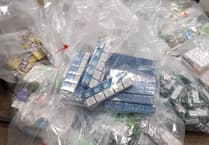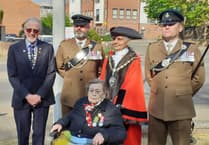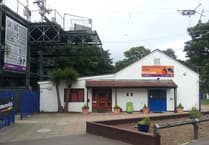PUBLIC reaction to the first accident and emergency walkout in the NHS’ 68-year history was described as “mostly positive” by striking junior doctors at the Royal Surrey County Hospital on Tuesday.
But a high-profile casualty of the impasse between the Government and the British Medical Association that led to the major escalation of strike action could be Health Secretary and Haslemere MP Jeremy Hunt.
Negotiations broke down in February following Mr Hunt’s announcement a new junior doctors contract would be imposed by summer.
When asked on Radio 4’s Today programme on Tuesday morning if he should “step down for the sake of the NHS”, Mr Hunt responded being Health Secretary was “likely to be my last big job in politics”.
Contingency plans put in place by the Guildford hospital in advance of the junior doctors’ decision to remove emergency cover from 8am-5pm on Tuesday and Wednesday resulted in 651 outpatient appointments being postponed and only four out of 12 theatres operating, predominantly dealing with emergency cases.
Despite the industrial action, 2,078 outpatient appointments went ahead.
Speaking before the industrial action, Royal Surrey medical director Christopher Tibbs said: “As always patient safety remains our number one priority and we put together exhaustive plans to ensure that this is not compromised.
“Junior doctors make up a significant part of our medical workforce and account for around 50 per cent of our doctor population, so the walkout will have a considerable impact on some services. We will continue to offer a full emergency service, but it will see the postponement of the majority of planned elective surgical procedures and more outpatient appointments than on previous occasions.
“We apologise in advance for any inconvenience caused to patients, but ask for their understanding.”
Interviewed on the Today programme on Tuesday, Mr Hunt said: “This is likely to be my last big job in politics and the one thing that will keep me awake is if I didn’t do the right thing to help make the NHS one of the safest, highest quality health care systems in the world.
“Health Secretaries are never popular. You’re never going to win a contest for being the most liked person when you do this job, but what history judges is did you take the tough and difficult decisions that enabled the NHS to deliver high quality care for patients?
“These changes are never easy, but the question is are you going to take the difficult decisions that mean we have better care for patients and deliver manifesto commitments, and that is what I am absolutely determined to do?”
Responding to Mr Hunt’s weekend appeal to the British Medical Association to call off “the extreme action planned”, association council chairman Dr Mark Porter responded a negotiated settlement could not take place “with the threat of imposition hanging over our junior doctors’ heads”.
NHS England likened its preparations for this week’s stoppage to a “military operation”.
The walkout, which was supported by 78 per cent of junior doctors, led to hospitals cancelling more than 100,000 routine appointments and nearly 13,000 non-emergency operations. Consultants, middle-grade doctors and nurses were deployed into emergency services, such as accident and emergency, maternity and intensive care units. GPs were also asked to keep more appointments than normal free for last-minute urgent calls, and NHS 111 staffing was boosted to allow it to deal with extra calls.
GP trainee Dr Ellie Galloway, who has been working in rotation in different departments at the Royal Surrey since 2013, said: “Public reaction has been mostly positive. A few felt we should be back at work.
“It was all very calm. Consultants are the most experienced doctors in the hospital and they were quite enthusiastic about covering for us. We have all thought very seriously about taking this action. No one has taken the decision lightly. At the moment, we barely manage to cover five days even though we work for seven days. If we are spread more thinly it would be unsafe.
“I went into medicine as a mature person, I have been a nurse and worked in the police. We don’t want to inconvenience patients but we are doing this for the longer term, to protect things for the future.”
Striking doctors at Frimley Park Hospital also reported big public support. Anaesthetics trainee Dr Kayur Patel said while it was great to have public backing, all the doctors taking action would much rather have been at work and wished they hadn’t had to resort such extreme measures.
But he was confident the cover put in place by senior colleagues would ensure patient care was not harmed.





Comments
This article has no comments yet. Be the first to leave a comment.